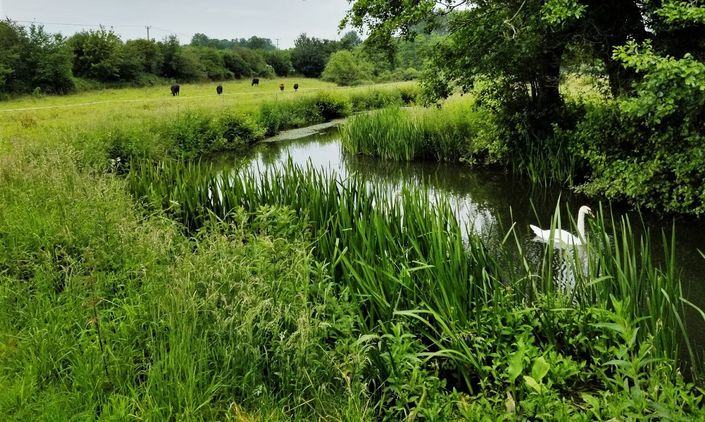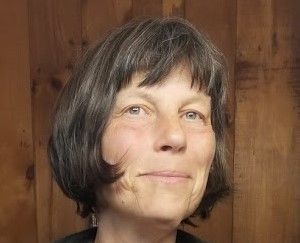
The Soil Sponge and Living Climate Workshop: November-December 2024
How the Biological Workforce Provides Flood, Drought, and Wildfire Resilience
Enroll in Course
Learn how thinking in systems can dramatically reduce the risk and impact of extreme weather events, rebuild local economies, and restore health and immunity for all living things...by working with (not against) nature's own processes.
5-week course on Mondays: November 4 to December 2, 2023
Get ready! This workshop on whole systems landscape function will give you an entirely new view of water, soils, climate, weather systems and economics. You will meet people from around the world, and come away feeling inspired by a new understanding of how we can address many of our major challenges through simple changes in land management.
Completion of the course also serves as a foundation for those who want to join the international Land and Leadership Development Community.
We meet on 5 Mondays: November 4 to December 2, 10:30 AM to 1 PM.
Use this TIME ZONE CONVERTER to see the time of the first meeting in your time zone.
(NOTE THAT WE WILL HAVE JUST CHANGED BACK TO STANDARD TIME in the USA.)
All sessions will be recorded, for those who need to miss a session.
PLEASE NOTE: This course will fill up quickly, please enroll promptly. Last minute registrations may not be available.
Scroll down to enroll!
“This will be an incredible course. Didi Pershouse is one of the best educators around.”
— Nicole Masters, Integrity Soils
The regeneration of a deep soil sponge can provide interrelated benefits such as:
- Healthier crops, animals, and people
- Food and water security
- Cooler regional temperatures
- Reduction of wildfire risk
- Increased resilience to flood and drought
- Reduced erosion, dredging, and road repairs
- Prevention of algae blooms and dead zones
- Cleaner air and water
- Reduced conflicts over resources
- Thriving local economies
- Putting atmospheric carbon to work creating landscapes that support all of life.
- a working knowledge of whole systems landscape function
- an increased ability to evaluate land management decisions, practices, and policies
- a clearer picture of soil's central role in addressing current economic, social, and environmental needs
- a community of practice: deep discussions with people working toward similar aims

Discussion among participants can continue via our private Google, What's App, and Facebook groups this is a great way to deepen connections with people working on regenerative projects around the world, learn from each other's wisdom and experience, share resources, and dive into more detail on specific questions.
If you have any questions please email me through my contact page by clicking here, or at [email protected].
NOTE: BE SURE TO DOUBLE CHECK YOUR EMAIL ADDRESS WHEN ENROLLING. IF YOU PUT THE WRONG ONE, WE WILL NOT BE ABLE TO CONTACT YOU WITH COURSE INFORMATION! If you are finding the enrollment page troublesome, please try using Chrome as your browser, or starting over from an incognito page. Teachable has a cookie issue. (As do many of us!)
Your Instructor

Didi Pershouse is the author of The Ecology of Care: Medicine, Agriculture, Money, and the Quiet Power of Human and Microbial Communities and Understanding Soil Health and Watershed Function. She is a contributing author for Health in the Anthropocene, Climate Change and Creation Care, and the Regenerative Economy Collaborative.
As the founder of the Center for Sustainable Medicine, she developed a practice and theoretical framework for systems-based ecological medicine—to restore health to people as well as the environmental and social systems around them. After 22 years of clinical work with patients, Pershouse now travels widely in North America and Europe as a speaker, teacher, and consultant.
Pershouse is a skilled facilitator, who brings people with diverging views together into effective working groups with common aims: improving soil health, public health, food and water security, and regional resilience through simple changes in land management. Both online and in-person, her participatory, inquiry-based workshops engage farmers and ranchers, policy makers, investors, and scientists in living-systems thinking and deep listening, to allow for emergent strategies. She was one of five speakers at the United Nations-FAO World Soil Day in 2017.
In 2018, she founded the Land and Leadership Initiative, and the "Can we Rehydrate California?" Initiative. She is currently a Planning Commissioner for her town, and on the board of supervisors for the White River Natural Resources Conservation District. She is on the board of directors of the Soil Carbon Coalition and the Vermont Healthy Soils Coalition. She was a member of the Vermont State appointed Payment For Ecosystem Services and Soil Health Working Group (and helped to steer the state into a better path than simply financializing all of nature's processes.) She led a successful effort to conserve the Zebedee Headwaters Wetlands while serving as a Vermont Conservation Commissioner.
She is currently working on projects with the UN-FAO Farmer Field School program and the Andhra Pradesh Community Managed Natural Farming Initiative in India (involving over 1,000,000 farmers). You can learn more about her work at www.didipershouse.com
